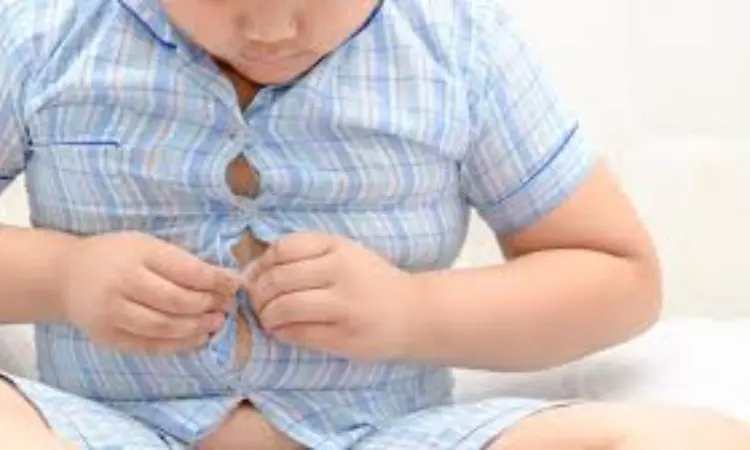- Home
- Medical news & Guidelines
- Anesthesiology
- Cardiology and CTVS
- Critical Care
- Dentistry
- Dermatology
- Diabetes and Endocrinology
- ENT
- Gastroenterology
- Medicine
- Nephrology
- Neurology
- Obstretics-Gynaecology
- Oncology
- Ophthalmology
- Orthopaedics
- Pediatrics-Neonatology
- Psychiatry
- Pulmonology
- Radiology
- Surgery
- Urology
- Laboratory Medicine
- Diet
- Nursing
- Paramedical
- Physiotherapy
- Health news
- Fact Check
- Bone Health Fact Check
- Brain Health Fact Check
- Cancer Related Fact Check
- Child Care Fact Check
- Dental and oral health fact check
- Diabetes and metabolic health fact check
- Diet and Nutrition Fact Check
- Eye and ENT Care Fact Check
- Fitness fact check
- Gut health fact check
- Heart health fact check
- Kidney health fact check
- Medical education fact check
- Men's health fact check
- Respiratory fact check
- Skin and hair care fact check
- Vaccine and Immunization fact check
- Women's health fact check
- AYUSH
- State News
- Andaman and Nicobar Islands
- Andhra Pradesh
- Arunachal Pradesh
- Assam
- Bihar
- Chandigarh
- Chattisgarh
- Dadra and Nagar Haveli
- Daman and Diu
- Delhi
- Goa
- Gujarat
- Haryana
- Himachal Pradesh
- Jammu & Kashmir
- Jharkhand
- Karnataka
- Kerala
- Ladakh
- Lakshadweep
- Madhya Pradesh
- Maharashtra
- Manipur
- Meghalaya
- Mizoram
- Nagaland
- Odisha
- Puducherry
- Punjab
- Rajasthan
- Sikkim
- Tamil Nadu
- Telangana
- Tripura
- Uttar Pradesh
- Uttrakhand
- West Bengal
- Medical Education
- Industry
HIIT alone or alongwith resistance exercises may significantly lower insulin resistance markers in obese youth: JAMA

Spain: Findings from a recent study published in JAMA Paediatrics underscore the role of exercise interventions in enhancing insulin resistance markers among overweight/obese adolescents and children.
The researchers advised including resistance exercises alongside aerobic and high-intensity interval training (HIIT) programs for a minimum of two to three 60-minute sessions per week.
The study showed that youths with excess weight who engaged in a minimum of two to three 60-minute sessions of moderate to vigorous activity per week, preferably through HIIT alone or combined with resistance training, achieved substantial improvements in homeostatic model assessment for insulin resistance (HOMA-IR) and fasting insulin.
Childhood obesity remains a major public health challenge in the 21st century in both developed and developing countries. There seems no clarity on its exact cause but is believed to involve psychological factors, unhealthy eating habits, physical inactivity, and genetics. Obesity-related insulin resistance and impaired glucose metabolism in youth can raise the risk of developing type 2 diabetes and other metabolic disorders in adolescents and beyond.
It is, therefore, crucial to promote healthy habits to prevent and manage childhood obesity as this can help reduce the risk of the above-mentioned metabolic disorders. Although benefits have been reported for most exercise modalities, there is no knowledge of the most effective approaches for reducing insulin resistance in children and adolescents with excess weight and the optimal exercise dose.
To fill this knowledge gap, Antonio García-Hermoso, and colleagues sought to compare exercise training modalities and their association with changes in insulin resistance markers among youth with excess weight and to establish the optimal exercise dose.
For the network meta-analysis and systematic review, the researchers searched 6 electronic databases for studies from inception to April 1, 2023. Randomized clinical trials were included if they reported outcomes associated with HIIT, resistance training, aerobic training, or a combination of these interventions. This analysis included 55 studies comprising 3051 children and adolescents (mean age, 13.5 years; 50.4% were girls).
The researchers reported the following findings:
- Exercise was associated with reductions in fasting insulin (MD, −4.38 μU/mL) and HOMA-IR (MD, –0.87).
- A nonlinear association in both markers was observed, with a required minimal exercise dosage of approximately 900 to 1200 metabolic equivalent of task minutes per week, especially in children and adolescents with insulin resistance at baseline.
- Combination HIIT and resistance training and concurrent training were the most effective approaches for reducing insulin resistance markers.
- On average, the certainty of evidence varied from low to moderate.
"It will be critical to further investigate and establish minimum physical activity recommendations that effectively address insulin resistance, reduce type 2 diabetes risk, and prevent metabolic syndrome in this specific population," the researchers concluded.
Reference:
García-Hermoso A, López-Gil JF, Izquierdo M, Ramírez-Vélez R, Ezzatvar Y. Exercise and Insulin Resistance Markers in Children and Adolescents With Excess Weight: A Systematic Review and Network Meta-Analysis. JAMA Pediatr. Published online October 09, 2023. doi:10.1001/jamapediatrics.2023.4038
Dr Kamal Kant Kohli-MBBS, DTCD- a chest specialist with more than 30 years of practice and a flair for writing clinical articles, Dr Kamal Kant Kohli joined Medical Dialogues as a Chief Editor of Medical News. Besides writing articles, as an editor, he proofreads and verifies all the medical content published on Medical Dialogues including those coming from journals, studies,medical conferences,guidelines etc. Email: drkohli@medicaldialogues.in. Contact no. 011-43720751


